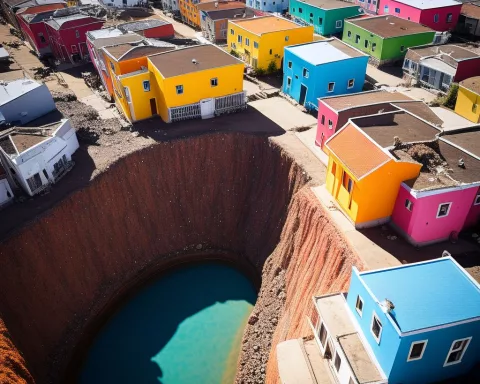The South African Transmission Financing Seminar: A Collaborative Effort
South Africa’s government, joined by the Johannesburg Stock Exchange (JSE), recently organized the South African Transmission Financing Seminar. This significant event gathered experts and key players from energy and financial fields to deliberate on the country’s power transmission infrastructure’s future.
South Africa’s energy security is heavily reliant on the growth and advancement of its electricity transmission infrastructure. This system must be durable and span various regions, allowing a diverse range of energy generating sources to contribute to the national grid. The government’s dedication to nurturing public-private partnerships aimed at discovering alternative funding options for sustaining, modernizing, and extending the national grid is praiseworthy.
Phutuma Nhleko, the JSE’s Chairman, underscored the value of cooperation in his introductory speech, asserting that “the JSE is heartened by the government’s pledge to collaborate with the private sector in finding alternative funding options for preserving, modernizing, and extending the national grid.”
Current Status and Expansion Plans for South Africa’s Transmission Infrastructure
During the seminar’s opening, Minister Kgosientsho Ramokgopa provided an overview of South Africa’s existing transmission situation, illustrating the necessity for transmission infrastructure expansion. He also presented the transmission growth plan and the corresponding key projects in the pipeline, highlighting the challenges faced by transmission, including the financial and funding gap required for transmission infrastructure development.
A primary concern is the inadequate investment in the transmission system due to the government’s financial limitations and governance shortcomings. Consequently, Eskom, the state-owned power utility, has postponed investments in the maintenance, refurbishment, and expansion of the national grid infrastructure. An estimated R 250 billion is needed to finance the expansion of South Africa’s grid.
Exploring Financing Solutions and Building Expertise
The seminar’s discussions revolved around four key areas under Chatham House rules, delving into the various financing requirements and potential solutions for transmission expansion and modernization. Crucial considerations included safeguarding the country’s long-term socio-economic interests, striking a balance between sustainability obligations, and adhering to international commitments related to climate change and decarbonization.
Essential themes addressed during the event included harmonizing private sector and government cooperation, investigating the availability and magnitude of financial resources, and gaining insight from international experiences to enhance local resilience, capacity, and expertise.
Minister Ramokgopa found the seminar to be advantageous, remarking that “the discussions were able to offer insights into how countries facing similar challenges were able to tackle their electricity issues and the potential methods for financing grid expansion.”
The Value of Public-Private Partnerships and Global Cooperation
The South African Transmission Financing Seminar exemplifies the importance of public-private partnerships and international collaboration in tackling pressing concerns. By tapping into the expertise and resources of the private sector, the government, and international partners, South Africa can develop a sustainable, resilient, and inclusive energy infrastructure that caters to its population’s needs and supports a thriving, expanding economy.









